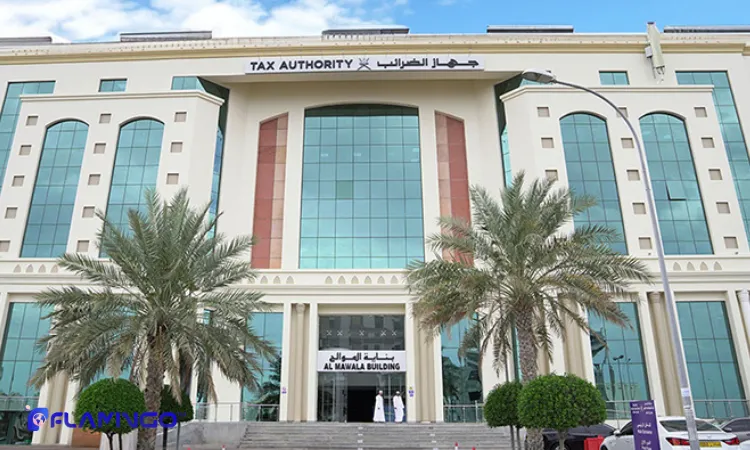Establishing a company in Oman is a significant step toward expanding your business in the Middle East. However, once your company is registered, understanding tax obligations after company registration in Oman becomes crucial to remain compliant with local laws and avoid penalties.
In this comprehensive guide, we will explore every aspect of Oman’s taxation system,from corporate income tax and VAT to filing deadlines and exemptions,so you can manage your business confidently.
Overview of Oman’s Tax System
Oman’s tax system has undergone significant transformation in recent years, making it one of the most modern and transparent frameworks in the GCC region. The government’s focus on diversification under Oman Vision 2040 has led to reforms that encourage foreign investment while ensuring fair and efficient tax collection.
The introduction of Value Added Tax (VAT) in 2021, the modernization of the Oman Tax Authority (OTA), and the digitalization of tax filing have made the system easier to navigate for both local and foreign companies. Businesses are now able to file returns, pay taxes, and access guidance through secure online portals, reducing administrative burdens and increasing compliance rates.
In Oman, the primary taxes applicable to businesses include corporate income tax, withholding tax, and VAT. There is no personal income tax on individuals, which continues to be one of the main advantages for expatriates and business owners operating in the country.
These features position Oman as a competitive, business-friendly jurisdiction in the Middle East.

The Role of the Oman Tax Authority (OTA)
The Oman Tax Authority (OTA) is the central government body responsible for managing and enforcing all tax-related matters in the country. Operating under the Ministry of Finance, the OTA ensures that the nation’s fiscal policies align with international best practices and support sustainable economic growth.
The OTA’s responsibilities include:
Implementing and enforcing Oman’s tax laws and regulations
Collecting and managing all types of taxes (corporate tax, VAT, and withholding tax)
Conducting audits and inspections to prevent tax evasion and underreporting
Issuing tax assessments and resolving disputes between taxpayers and the authority
Providing online services through its e-tax portal for registration, filing, and payments
Since its establishment in 2020, the OTA has focused heavily on digital transformation. The OTA e-portal (www.taxoman.gov.om) now serves as a one-stop platform for all tax-related activities, offering step-by-step guidance to help businesses meet their compliance obligations.
Moreover, the OTA regularly issues public clarifications, circulars, and guidance notes to help businesses interpret tax laws correctly. This transparency fosters confidence among investors and ensures consistency in how the tax system is applied across different sectors.
Who Needs to Pay Tax in Oman?
Understanding who is subject to taxation is one of the most important steps after company registration in Oman.
In general, any entity carrying out commercial, industrial, or professional activities in Oman is liable to pay tax on its income generated within the Sultanate. This includes:
Omani companies (wholly or partially owned by nationals)
Foreign companies with permanent establishments or branches in Oman
Free zone companies, depending on their specific exemption terms
Foreign entities earning income from Omani sources (via royalties, interest, or service fees)
Even if your company operates in a free zone,such as Duqm, Sohar, or Salalah,you are still required to register with the OTA for tax purposes and file annual tax returns to maintain your exemption status.
Corporate Income Tax in Oman
As of 2025, the standard corporate income tax rate in Oman is 15%.
However, small and medium enterprises (SMEs) with annual revenues below OMR 100,000 may qualify for a reduced rate of 3%, provided they meet specific criteria such as Omani ownership and limited number of employees.
Exemptions and Deductions
Certain sectors, such as manufacturing, tourism, agriculture, and mining, may be eligible for tax holidays or exemptions ranging from 5 to 10 years.
Additionally, businesses can claim deductions for operating expenses, depreciation, and losses carried forward for up to five years.

Taxation for Free Zone Companies
Oman’s free zones,such as Sohar, Duqm, Salalah, and Al Mazunah—offer significant tax advantages.
Companies registered within these zones may enjoy:
0% corporate income tax for up to 25 years
100% foreign ownership
Exemption from import/export duties
Despite these benefits, free zone companies are still required to maintain records and file returns with the OTA.
How to File Corporate Tax Returns
Companies must file their annual tax returns electronically through the OTA portal. The process involves submitting financial statements, tax computations, and supporting documents.
Typically, returns are due within 4 months after the end of the financial year.
Failure to submit on time can result in penalties of up to OMR 2,000 or more, depending on the delay.
Value Added Tax (VAT) in Oman
Oman introduced VAT in April 2021 at a standard rate of 5%.
Businesses with annual taxable supplies exceeding OMR 38,500 must register for VAT. Voluntary registration is also available for companies with turnover above OMR 19,250.
VAT Rates and Exempt Goods
The standard VAT rate is 5%, applied to most goods and services.
However, certain categories are zero-rated or exempt, such as:
- Basic food items
- Education and healthcare services
- Financial and insurance services
- Residential property rent
VAT Filing and Payment Procedures
VAT returns must be submitted quarterly through the OTA’s e-portal. Businesses are required to keep detailed invoices and accounting records for at least 10 years.
Payments should be made electronically, and late submission or payment can result in penalties up to OMR 1,000 or 1% of the tax due per month.

Withholding Tax and Other Levies
Definition and Applicability
Withholding tax (WHT) applies to certain payments made by Omani entities to foreign persons or companies without a permanent establishment in Oman.
Payments Subject to Withholding Tax
The WHT rate is generally 10%, applied to the following payments:
Royalties and franchise fees
Interest and dividends
Fees for technical services or management contracts
Rent or lease payments for equipment
Companies must deduct the tax at the source and remit it to the OTA within 14 days of payment.
Common Mistakes New Companies Make
Delaying Tax Registration
Some business owners assume registration is automatic after company setup, but failing to register for tax or VAT on time can lead to fines and disqualification from incentives.
Misunderstanding VAT Applicability
Certain foreign companies mistakenly believe VAT does not apply to their services. If they supply taxable goods or services in Oman, VAT registration is mandatory once the threshold is met.
Failing to File on Time
Even if your business made no profit, you are still required to file a zero return. Neglecting to do so can result in unnecessary penalties.






